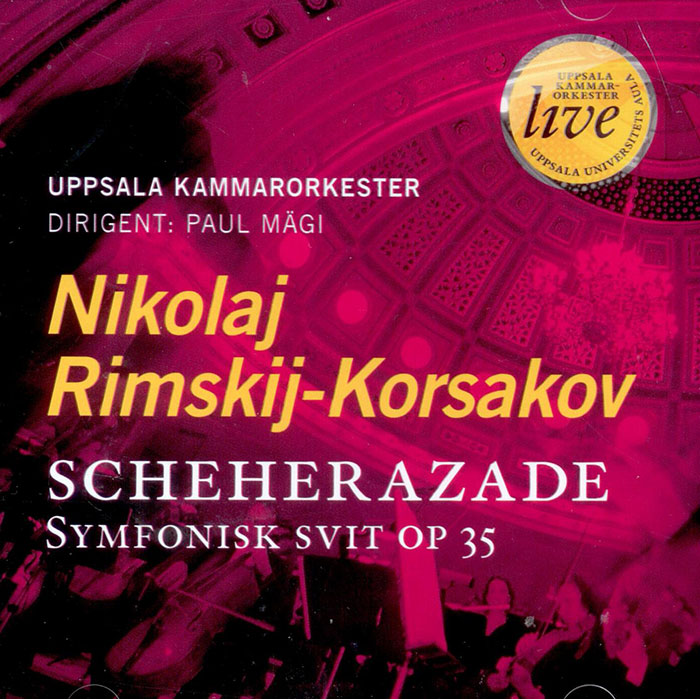Logowanie
Dlaczego wszystkjie inne nie brzmią tak jak te?
Chai Lang, Fan Tao, Broadcasting Chinese Orchestra
Illusive Butterfly
Butterly - motyl - to sekret i tajemnica muzyki chińskiej.
SpeakersCorner - OSTATNIE!!!!
RAVEL, DEBUSSY, Paul Paray, Detroit Symphony Orchestra
Prelude a l'Apres-midi d'un faune / Petite Suite / Valses nobles et sentimentales / Le Tombeau de Couperin
Samozapłon gwarantowany - Himalaje sztuki audiofilskiej
PROKOFIEV, Stanislaw Skrowaczewski, Minneapolis Symphony Orchestra
Romeo and Juliet
Stanisław Skrowaczewski,
✟ 22-02-2017
BARTOK, Antal Dorati, Philharmonia Hungarica
Dance Suite / Two Portraits / Two Excerpts From 'Mikrokosmos'
Samozapłon gwarantowany - Himalaje sztuki audiofilskiej
ENESCU, LISZT, Antal Dorati, The London Symphony Orchestra
Two Roumanian Rhapsodies / Hungarian Rhapsody Nos. 2 & 3
Samozapłon gwarantowany - Himalaje sztuki audiofilskiej
Winylowy niezbędnik
ClearAudio
Cartridge Alignment Gauge - uniwersalny przyrząd do ustawiania geometrii wkładki i ramienia
Jedyny na rynku, tak wszechstronny i właściwy do każdego typu gramofonu!
ClearAudio
Harmo-nicer - nie tylko mata gramofonowa
Najlepsze rozwiązania leżą tuż obok
IDEALNA MATA ANTYPOŚLIZGOWA I ANTYWIBRACYJNA.
Wzorcowe
Carmen Gomes
Celebrating the art and spirit of music - vol. 5 - Reference Songs
- CHCECIE TO WIERZCIE, CHCECIE - NIE WIERZCIE, ALE TO NIE JEST ZŁUDZENIE!!!
Petra Rosa, Eddie C.
Celebrating the art and spirit of music - vol. 3 - Pure
warm sophisticated voice...
SAMPLER - STS DIGITAL, Gregor Hamilton
Celebrating the art and spirit of music - vol. 2 - Love songs from Gregor Hamilton
...jak opanować serca bicie?...
SAMPLER - STS DIGITAL
Celebrating the art and spirit of music - vol. 1 - Leonardo Amuedo
Największy romans sopranu z głębokim basem... wiosennym
Lils Mackintosh
Celebrating the art and spirit of music - vol. 4 - A Tribute to Billie Holiday
Uczennica godna swej Mistrzyni
RIMSKY-KORSAKOV, Paul Magi, Uppsala Chamber Orchestra
Scheherazade, Symphonic Suite, Op. 35
- Paul Magi - conductor
- Uppsala Chamber Orchestra - orchestra
- RIMSKY-KORSAKOV
nagranie o szczególnych walorach brzmieniowych
NIKOLAI RIMSKY-KORSAKOV / SCHEHERAZADE SYMPHONIC SUITE OP 35 Nikolai Rimsky-Korsakov came from a family with proud naval traditions and was slated to carry them on. However, he was musically gifted and was recommended by the composer Mili Balakirev to devote himself entirely to a career in music instead. Unfortunately neither Balakirev nor anyone else was capable of providing him with the knowledge he was seeking, so he quite simply taught himself by studying on his own and by orchestrating, structuring, and completing works by colleagues who were less than meticulous or professional. In 1871 he assumed a post as professor of composition and instrumentation at the St. Petersburg Conservatory. Rimsky-Korsakov belonged to a group of young Russian composers who wanted to nurture the typically Russian qualities of music, looking to the East rather than theWest to find their musical roots.Music was to build on folk traditions and subject were to be taken from Russian stories and sagas.Many of his operas bear signs of this, as do many of his instrumental music and orchestral works. Scheherazade was written in 1888 and, with its fanciful narrative and rich sonorities, it has come to assume a unique place in the history of music. For his Scheherazade he chose four stories:The Story of Sinbad the Sailor -The Story of the Kalander Prince-The Young Prince and the Young Princess - Festival at Baghdad and the Shipwreck and the BronzeWarrior. He writes in his autobiography that "the audience should see the titles as hints that direct their fancy...." On the title page of the score Rimsky- Korsakov wrote the following: "Convinced of the infidelity of women, the Sultan Schahriar had sworn always to kill his new brides after the first night. But his bride Scheherazade saved her life by regaling him with stories, which she told him for a thousand and one nights. Vanquished by his curiosity, the sultan postponed the execution of his wife day after day and ultimately abandoned his bloody resolution entirely. Scheherazade told many wonders to Sultan Schahriar. For her tales, she drew on the poems of the bards and the words of folk songs, and she herself made up many adventures and sagas." UPPSALA CHAMBER ORCHESTRA Uppsala Chamber Orchestra - regarded by many as one of the finest chamber orchestras in Sweden - is part of Musik i Uppland, the county musical foundation. The orchestra has previously released critically acclaimed recordings on Naxos, one of which - Drottningholm Music by Johan Helmich Roman - was awarded a gold record in 2002. Uppsala Chamber Orchestra is characterized by its flexibility in various styles, from early baroque to contemporary music, and its exquisite orchestral sound, both warm and lustrous. The orchestra includes a number of fine soloists who ensure its high quality. Uppsala Chamber Orchestra's first principal conductor from 1993 was Gérard Korsten, now artistic director of the London Mozart Players. The English pianist and conductor Howard Shelley was its principal conductor from 2000 to 2003. As of 2004, its principal conductor is Paul Mägi, a very highly regarded conductor with multiple international assignments. Th e concertmasters are Nils-Erik Sparf and Klara Hellgren, who are both members of the string sextet Uppsala Chamber Soloists. PAUL MÄGI The Estonian conductor Paul Mägi has been frequently featured on Swedish podiums in recent years. He has had a long and successful career as conductor and artistic director of several prominent orchestras in the Baltic countries. In 1990 Paul Mägi was appointed artistic director and principal conductor of the Latvian National Orchestra in Riga. Between 1995 and 2002 he was artistic director and principal conductor of the Estonian National Opera in Tallinn. Paul Mägi has conducted leading orchestras in a score of countries in Europe and the US. Some of the Swedish orchestras he has conducted are the Swedish Radio Symphony Orchestra, the Royal Stockholm Philharmonic Orchestra, the Royal Court Orchestra, and the Gothenburg Symphony Orchestra. He is regarded as one of the foremost teachers of future conductors and is the professor at the College of Music in Tallinn, and is also professor at the Royal College of Music in Stockholm.
























